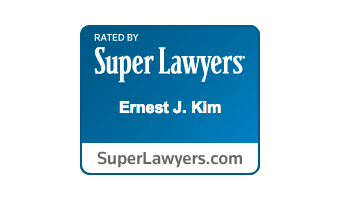Trust Administration
During the time that the Trust’s Grantor (the person who created the Trust) is managing their own trust, not much changes in the day to day life of the Grantor; as long as the assets are in the Living Trust, the Trustee can handle financial transactions and pay bills with a few relatively minor changes.
However, when an event such as the death of incapacity of the Grantor occurs, the next successor Trustee named in the Trust will need to take over all trustee duties, and this change of control requires some administration of the Trust be started immediately.
We understand that families who seek out information regarding trust administration are coming to us during a difficult time, and that the next steps can seem overwhelming. We are here to answer all your estate and trust administration questions.
If the Decedent created a Trust, the Trust (or a portion of it, if it was a married couple’s trust) is now irrevocable even if the name of the trust includes the word “Revocable.” A “Revocable” trust is generally only revocable during the lifetime of the Decedent or incapacitated person who created it, but once that person, who could have revoked or changed it is no longer able to do so, there is no one else who can make such changes and this renders the Trust “irrevocable.” The Trust documents should be consulted to see who the next Trustee (the Successor Trustee) is to be, and the Trust administration process should be started by that Successor Trustee as soon as reasonably possible. There are some important deadlines and dates to keep track of including:
- If there is a Trust left by the decedent, the person who has custody of that original document should safely deliver it to the named Successor Trustee (the next trustee named after the Decedent in the Trust document). ORIGINAL DOCUMENTS SHOULD ALWAYS BE CAREFULLY STORED IN A SAFE LOCATION, and anyone who needs to see the document should be provided with copies only; the originals should never be given to anyone until after a trust attorney has been consulted and retained.
- Within sixty (60) days of the death or incapacity of the Trust settlor, the Successor Trustee should give a formal “Notification by Trustee” on all affected parties, in the format required by the probate code. This notification is also required to be given whenever there is a change in trustees.
- It is important to provide the Notification by Trustee promptly, as the date of serving it starts the 120-day clock running for any challenges to the documents to be brought up, and because the trust beneficiaries have the right to know who is managing the Trust assets and whether it is being managed properly.
- If the estate is of sufficient size (about $4M+ for married couples, or about $11M for single person in 2023) there may be estate tax returns to be filed or tax planning needed. A probate attorney and a CPA should be consulted to review the Trust and advise regarding tax matters, and this should be done as soon as possible so that preparations can be made to meet the 9 months from the date of death deadline for estate tax return filings and estate tax planning.
- If there is real property in the estate, there are some filings to be done with the County’s Tax Assessor/Recorder’s office within 150 days of the date of death. (BOE-502D)
- If there is a family home that qualifies for the parent-child reassessment exclusion, a claim form should be filed as soon as possible to prevent reassessment of the property tax, but no later than three years after the date of death and before the property is sold to a third party. (BOE-58)
When a successor trustee takes over due to death or incapacity of the Settlor, the new Trustee must manage the Trust in accordance with the trust’s terms and according to California law, and the Trustee has important responsibilities in the management of the trust assets to the next owners of the assets, who are the named beneficiaries of the Trust. Trust property immediately needs to be secured and safeguarded, and the steps required will be dependent on the family situation and the types of assets in the Trust. If the Decedent left any assets that were not titled to the Trust, additional steps such as probate may be needed to bring those assets under the control and management of the Trustee or Executor. If there is a business, immediate action will probably be required to keep the business operational and to get access to business bank accounts so that payroll and taxes can be paid, inventory secured, etc.. The same goes for rental property, stocks, etc.. We have made a simplified checklist available, for basic interim steps for successor trustees to consider in a post-death situation, but nothing can replace receiving proper legal advice for your family’s particular situation.
A good rule of thumb is that when the death certificate becomes available, the first consultation should take place to discuss the assets that need to be looked into so that any urgent matters can be addressed and the Trustee can receive the information needed in order to meet their duties to manage the Trust assets properly.
For more information about the Administration process and working with us, please see our detailed PROCESS page.
Some helpful terms to know for a trust administration:
Decedent/Settlor – the person created and put property into the Trust.
Successor Trustee/Trustee – the person in charge of carrying out the Trust’s instructions.
Beneficiary- the person/s who are named in the Trust to receive assets.
Fiduciary Duties – A Trustee of an irrevocable Trust is a fiduciary, which means that they are basically in a position of trust, taking care of other people’s (beneficiaries) money. Because a Trustee is managing someone else’s assets, they are required by law to act in accordance with their fiduciary duties, including but not limited to the following:
- A Trustee must administer the trust solely in the interest of the beneficiaries and must not use or deal with trust property for their own benefit or for purposes unconnected with the trust.
- If a trust has two or more beneficiaries, the Trustee has a duty to deal fairly and act impartially with each of them. This means that a Trustee who is also a beneficiary must exercise special care to make sure their decisions as Trustee do not appear to benefit their own interests as a beneficiary, at the expense of another beneficiary.
- A Trustee must not mix Trust property with their personal assets.
- A Trustee must safeguard the assets and manage/invest them prudently, which means a Trustee must be even more cautious with Trust assets, than with their own.
- A Trustee must share important information regarding the Trust with ALL of the Trust’s beneficiaries, and they must keep very clear records of what has been done with trust assets, as well as trust income/expenses, etc., so they can provide accountings to the beneficiaries at regular intervals.
- A Trustee is responsible for seeing that the assets of the trust are distributed to the beneficiaries properly, and in a timely manner.
If you are a Successor Trustee concerned about properly fulfilling your fiduciary and Trustee duties, please seek professional legal advice as soon as possible.





